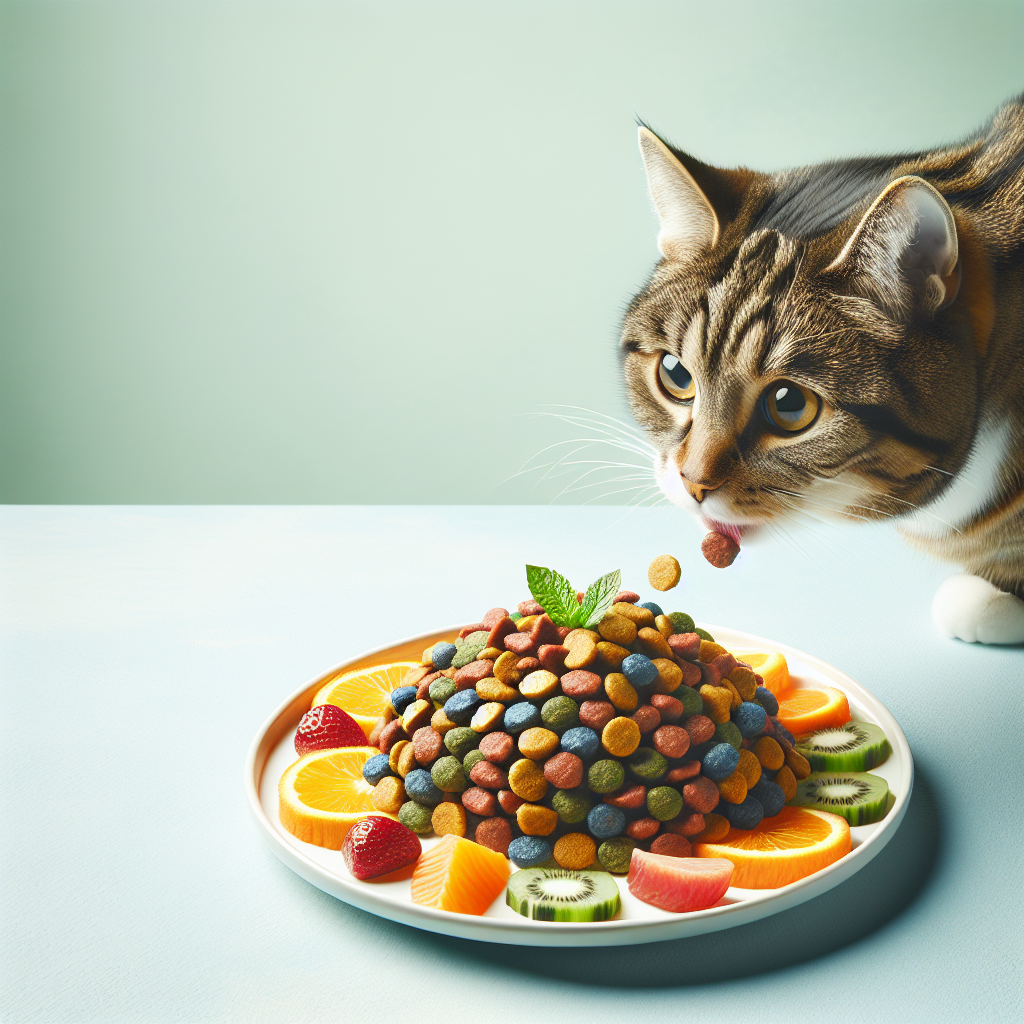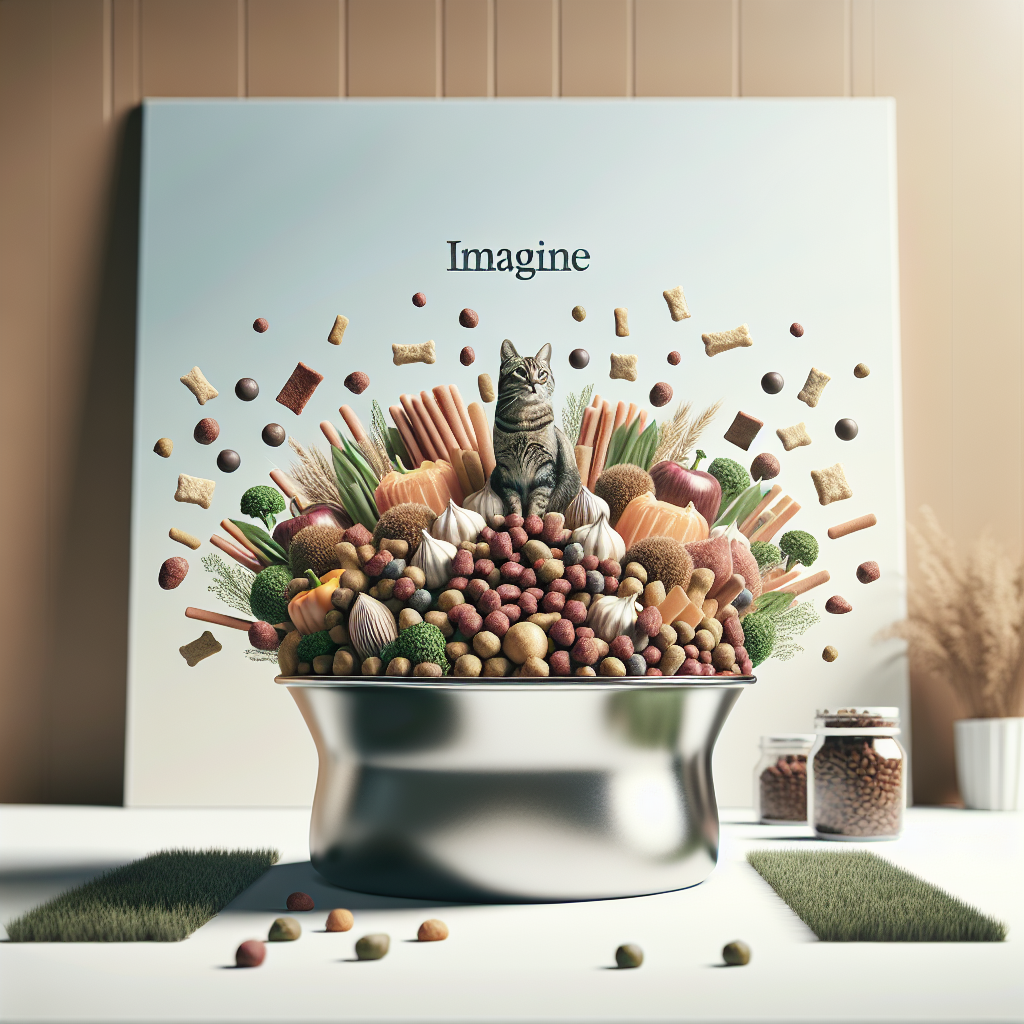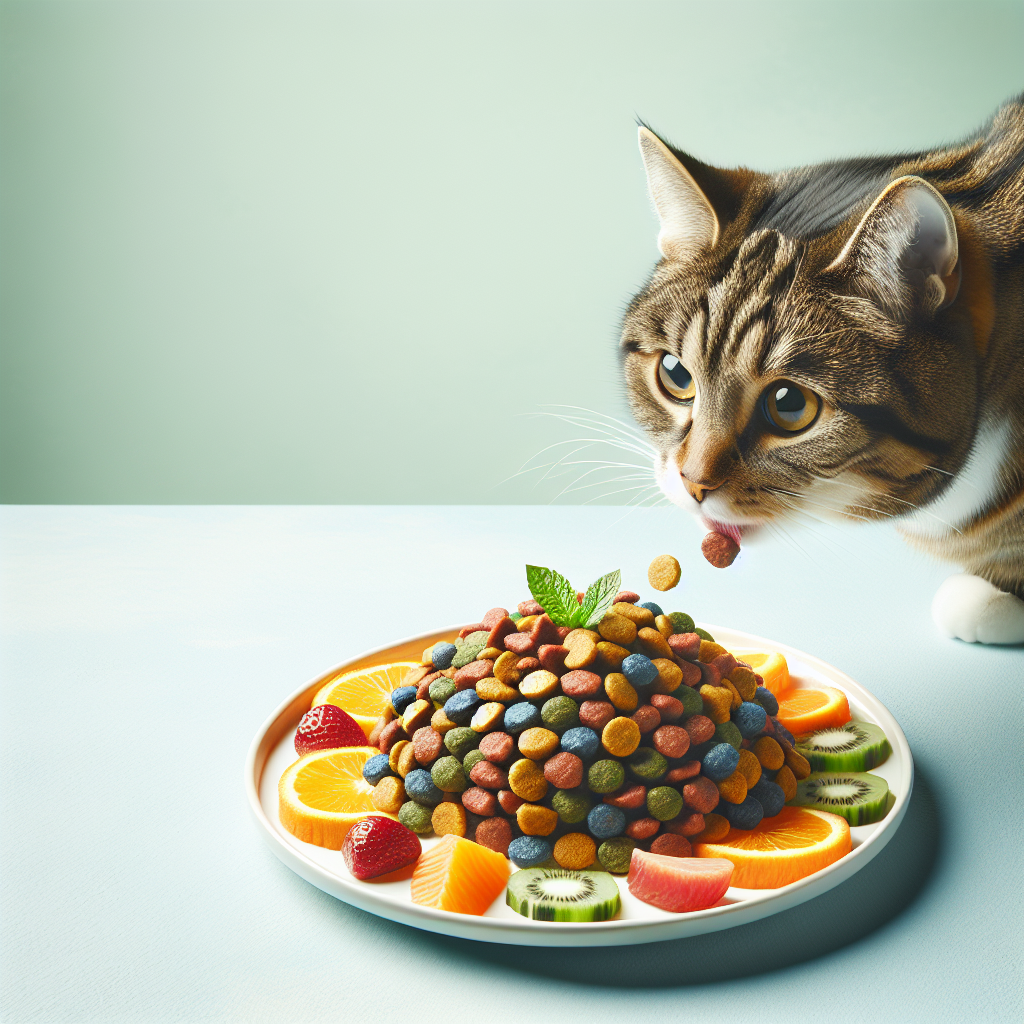If you’re a proud owner of a charming tabby cat, you must be wondering about the best diet for your furry friend. Fret not, as we delve into the fascinating world of tabby cats’ nutrition, exploring what these delightful felines should be devouring to stay healthy and happy. Whether you’re a seasoned cat owner or a first-time tabby parent, this article will guide you on providing the perfect diet to keep your beloved kitty purring with contentment.
Understanding Tabby Cats’ Nutritional Needs
Tabby cats, like all cats, require a well-balanced and nutritious diet to support their overall health and well-being. As cat owners, it’s essential to understand the specific nutritional needs of tabby cats and provide them with the right food to thrive. Factors such as the type of cat food, macronutrient balance, essential micronutrients, common dietary concerns, feeding schedule, portion control, dietary supplements, potential health risks, transitioning to a new diet, and consulting with a veterinarian are all important aspects to consider when it comes to tabby cat nutrition.
1. High-Quality Cat Food for Tabby Cats
When it comes to feeding your tabby cat, one of the first decisions you’ll need to make is whether to opt for commercial cat food or a homemade diet. While homemade diets can offer more control over ingredient quality, commercial cat food is generally formulated to meet all of a cat’s nutritional needs. Regardless of which option you choose, it’s crucial to carefully read the labels and select a high-quality cat food.
Commercial Cat Food vs. Homemade Diets
Commercial cat food products are specifically designed to provide all the necessary nutrients in the right proportions, taking into account a cat’s age, activity level, and health condition. They undergo extensive testing to ensure they meet the standards set by regulatory bodies. On the other hand, homemade diets require careful planning and preparation to ensure they provide the essential nutrients your tabby cat needs in the correct amounts. Consulting with a veterinarian or a veterinary nutritionist is recommended if you choose to feed your tabby cat a homemade diet.
Importance of Reading Labels
When choosing a commercial cat food for your tabby, reading the labels becomes crucial. Look for products that list high-quality protein sources, such as real meat, as the first ingredient. Avoid foods that contain excessive amounts of fillers, artificial additives, and preservatives. It’s also important to consider any specific dietary requirements or sensitivities your tabby cat may have and select a suitable food accordingly.
Recommended Ingredients
In order to maintain optimal health, tabby cats require a diet that includes high-quality sources of protein, fats, and carbohydrates. Look for cat food that contains real meat, fish, or poultry as the primary protein source. Protein is essential for muscle development and overall cat health. Additionally, a source of healthy fats, such as omega-3 fatty acids, can promote a healthy coat and skin. Complex carbohydrates, such as whole grains, are also beneficial, providing energy and dietary fiber.
Avoiding Harmful Ingredients
Be cautious of cat foods that contain harmful ingredients, such as artificial flavors, colors, and preservatives. Avoid foods that contain excessive amounts of corn, wheat, or soy, as these ingredients can cause allergies or sensitivities in some cats. Additionally, foods with a high level of carbohydrates or unnecessary fillers may lead to weight gain and other health issues. Always check the ingredient list and choose cat food that prioritizes natural and high-quality ingredients.
2. Balancing Macronutrients in a Tabby Cat’s Diet
Macronutrients, including proteins, carbohydrates, and fats, are crucial for providing your tabby cat with the energy and nutrients they need to thrive. Properly balancing these macronutrients is essential for supporting muscle development, providing energy, promoting a healthy coat, and maintaining the right caloric intake.
Proteins for Muscle Development
Proteins are the building blocks of a cat’s body and are essential for muscle development, wound healing, and overall growth. Look for cat food that contains high-quality animal-based proteins, such as chicken, turkey, or fish. These proteins contain all the essential amino acids that cats need for optimal health. Ensure that the protein content in the cat food is appropriate for your tabby’s age and activity level.
Carbohydrates for Energy
While cats are obligate carnivores and have a limited ability to digest carbohydrates, some sources of carbohydrates can still be beneficial. Complex carbohydrates, such as whole grains or vegetables, can provide a source of energy and dietary fiber. However, it is important to avoid high-carbohydrate diets, as they can contribute to obesity and other health issues. Carbohydrates should make up a smaller portion of a cat’s diet compared to proteins and fats.
Fats for Healthy Coat
Fats are an important component of a tabby cat’s diet as they provide a concentrated source of energy and play a vital role in maintaining a healthy coat and skin. Look for cat food that contains high-quality sources of essential fatty acids, such as omega-3 and omega-6 fatty acids. These fatty acids help prevent dry skin, promote a shiny coat, and support overall skin health. However, it’s important to feed fats in moderation to avoid excessive weight gain.
The Right Caloric Intake
Maintaining the right caloric intake is crucial to prevent weight gain or loss in tabby cats. The caloric needs of a cat can vary depending on their age, size, activity level, and overall health. It’s important to consult with your veterinarian to determine the appropriate amount of calories your tabby cat needs each day. Feeding too many calories can lead to obesity, while too few calories can result in malnutrition.

3. Essential Micronutrients for Optimal Health
In addition to macronutrients, tabby cats also require essential micronutrients to ensure optimal health and well-being. These micronutrients include vitamins, minerals, antioxidants, and water.
Vitamins
Vitamins play a vital role in maintaining various bodily functions in tabby cats. Vitamin A is important for vision, immune function, and skin health. Vitamin D helps with calcium absorption, promoting healthy bones and teeth. B vitamins are essential for energy metabolism, while vitamin E acts as an antioxidant, protecting cells from damage. It’s important to provide a balanced diet that includes a variety of foods to ensure your tabby cat gets all the necessary vitamins.
Minerals
Minerals are critical for various physiological processes in a tabby cat’s body. Calcium and phosphorus are essential for bone and teeth development. Iron is important for the formation of red blood cells and oxygen transport. Zinc supports immune function and wound healing, while selenium acts as an antioxidant. Providing cat food that contains a proper balance of minerals is crucial for your tabby cat’s well-being.
Antioxidants
Antioxidants are important for neutralizing harmful molecules called free radicals, which can damage cells and contribute to aging and disease. Vitamin C and vitamin E are two important antioxidants for tabby cats. They help protect the body’s cells from oxidative damage and support a healthy immune system. Feeding your tabby cat a diet rich in antioxidants can help promote overall health and longevity.
Water
Water is an essential nutrient for tabby cats and plays a vital role in various bodily functions, including digestion, temperature regulation, and waste removal. It’s crucial to ensure that your tabby has access to fresh and clean water at all times. Some cat foods also contain moisture-rich ingredients or wet cat food can be included in their diet to help maintain proper hydration levels.
4. Addressing Common Dietary Concerns for Tabby Cats
While tabby cats may have specific dietary concerns or sensitivities, addressing these concerns is crucial for their overall health and well-being. Common dietary concerns include food allergies and sensitivities, managing weight and obesity, and special dietary considerations.
Food Allergies and Sensitivities
Just like humans, cats can develop allergies or sensitivities to certain foods. Common allergens for cats include beef, dairy products, fish, and grains. If you suspect that your tabby cat has a food allergy or sensitivity, it’s important to work with your veterinarian to identify the allergen and eliminate it from their diet. Switching to a hypoallergenic cat food may be necessary in some cases.
Managing Weight and Obesity
Maintaining a healthy weight is essential for the overall well-being of tabby cats. Obesity can lead to a range of health problems, including joint issues, diabetes, and heart disease. To manage weight and prevent obesity, it’s important to provide your tabby cat with a balanced diet and monitor their portion sizes. Regular exercise and playtime can also help keep your tabby cat active and prevent weight gain.
Special Dietary Considerations
Tabby cats may have special dietary considerations depending on their age, health condition, or specific dietary needs. For example, senior cats may require a diet with lower calorie content and more joint-supporting nutrients. Cats with certain health conditions, such as kidney disease or diabetes, may require specific diets tailored to their needs. It’s important to consult with a veterinarian to ensure that your tabby cat’s diet meets their individual requirements.

5. Feeding Schedule and Portion Control
Establishing a feeding schedule and practicing portion control is essential to prevent overfeeding and promote a healthy weight in tabby cats. Consider the frequency of meals, determining the right portion size, avoiding overfeeding, and monitoring eating habits.
Frequency of Meals
Tabby cats thrive on a consistent feeding schedule. Dividing their daily caloric intake into multiple small meals can help meet their metabolic needs and prevent overeating. Most adult cats do well with two meals a day, while kittens may require more frequent feeding. However, the exact feeding schedule may vary depending on your tabby’s individual needs and your veterinarian’s recommendations.
Determining the Right Portion Size
Determining the appropriate portion size for your tabby cat can be challenging. It’s essential to consider factors such as their age, activity level, and overall health condition. Consult with your veterinarian to calculate the daily caloric needs of your tabby based on their unique requirements. Measuring out the appropriate portion sizes using a kitchen scale or specific measuring cups can help prevent overfeeding and obesity.
Avoiding Overfeeding
Overfeeding can lead to weight gain and other health issues in tabby cats. It’s important to avoid free-feeding or leaving food out all day, as cats may tend to overeat when given unlimited access to food. Follow the recommended portion sizes based on your tabby’s needs and avoid giving excessive treats or table scraps. By practicing portion control, you can help your tabby maintain a healthy weight and prevent obesity.
Monitoring Eating Habits
Keeping an eye on your tabby cat’s eating habits is essential to detect any changes in appetite or abnormal behavior. A sudden loss of appetite, excessive eating, or significant weight loss or gain may indicate an underlying health issue. If you notice any unusual eating habits, it’s important to consult with your veterinarian to determine the cause and develop an appropriate treatment plan.
6. Dietary Supplements for Tabby Cats
While a well-balanced diet is typically sufficient to meet a tabby cat’s nutritional needs, there may be instances where dietary supplements can provide additional health benefits. Understanding the benefits of supplements, commonly recommended supplements, and consulting with a veterinarian is essential when considering dietary supplements for your tabby cat.
Benefits of Supplements
Dietary supplements can help address specific health concerns or provide additional support for certain body systems in tabby cats. They are particularly useful in cases where a cat has a specific deficiency or requires extra support due to age or health conditions. Supplements can help promote joint health, support a healthy immune system, improve skin and coat condition, aid digestion, and provide other important health benefits.
Commonly Recommended Supplements
There are several commonly recommended supplements for tabby cats. Omega-3 fatty acids, derived from sources such as fish oil, can help support a healthy coat and skin, reduce inflammation, and promote overall wellness. Probiotics can be beneficial for maintaining a healthy gut flora and aiding digestion. Joint supplements, such as glucosamine and chondroitin, can help support joint health in older cats or those with joint issues. However, it’s important to consult with a veterinarian before starting your tabby on any supplements.
Consulting with a Veterinarian
Before introducing any dietary supplements into your tabby cat’s diet, it’s crucial to consult with a veterinarian. They can evaluate your cat’s individual needs, determine any potential interactions or contraindications, and recommend the most appropriate supplements for your tabby. A veterinarian can also advise on the proper dosage and duration of supplementation to ensure optimal results and prevent any potential side effects.
7. Potential Health Risks of an Imbalanced Diet
Feeding an imbalanced diet to your tabby cat can lead to various health risks. It’s important to understand these risks, including malnutrition, obesity-related issues, dental problems, and gastrointestinal disorders, and take appropriate measures to maintain a balanced and nutritious diet.
Malnutrition
Malnutrition occurs when a tabby cat receives an inadequate or imbalanced diet. It can lead to deficiencies in essential nutrients, resulting in various health issues, including impaired growth, weakened immune system, poor coat condition, and organ dysfunction. It’s important to provide a diet that fulfills all of your tabby cat’s nutritional requirements to prevent malnutrition.
Obesity-Related Issues
Overfeeding and providing a diet high in calories can lead to obesity in tabby cats. Obesity increases the risk of various health problems, including diabetes, arthritis, heart disease, and respiratory issues. It’s important to maintain a healthy weight for your tabby cat by providing appropriate portion sizes, promoting regular exercise, and avoiding excessive treats or calorie-dense foods.
Dental Problems
Poor nutrition can contribute to dental issues in tabby cats. Feeding a diet lacking in appropriate texture or dental benefits can result in plaque buildup, tartar formation, gum disease, and bad breath. It’s important to include dental-friendly options in your tabby’s diet, such as dry kibble formulated to promote dental health, or consult with your veterinarian for recommendations on dental care.
Gastrointestinal Disorders
An imbalanced diet can disrupt the delicate balance of a tabby cat’s gastrointestinal system, leading to digestive issues such as diarrhea, vomiting, or constipation. Providing a diet that contains adequate fiber, probiotics, and easily digestible ingredients can help maintain a healthy digestive system and prevent gastrointestinal disorders. If your tabby cat experiences persistent digestive issues, consult with a veterinarian for further evaluation and appropriate dietary recommendations.
8. Transitioning to a New Diet
When transitioning your tabby cat to a new diet, it’s important to do so gradually to minimize any potential digestive upset. Sudden dietary changes can lead to gastrointestinal issues. Following a gradual transition process and monitoring for any adverse reactions will help ensure a successful transition.
Gradual Transition Process
To transition your tabby to a new diet, start by mixing a small portion of the new food with their current food. Gradually increase the proportion of the new food over several days or weeks, depending on your cat’s tolerance. Monitor their stool consistency and overall well-being during the transition period. If any adverse reactions occur, such as diarrhea or vomiting, slow down the transition process or consult with a veterinarian for further guidance.
Monitoring for Any Adverse Reactions
During the transition period, it’s crucial to monitor your tabby cat for any adverse reactions to the new diet. Signs of intolerance or allergic reactions may include vomiting, diarrhea, excessive scratching or grooming, skin rashes, or changes in behavior. If any of these symptoms occur, discontinue the new diet and consult with a veterinarian for further evaluation and potential alternative diet options.
10. Consult with a Veterinarian
Consulting with a veterinarian is of utmost importance when it comes to your tabby cat’s diet. A veterinarian can provide professional guidance tailored to your cat’s individual needs, ensuring they receive the appropriate nutrition for optimal health and well-being.
Importance of Professional Guidance
A veterinarian possesses the expertise and knowledge to evaluate your tabby cat’s overall health, assess their dietary requirements, and recommend the most suitable diet. They can also offer valuable advice on maintaining a healthy weight, managing specific health conditions, or addressing any unique dietary concerns your tabby cat may have. Regular check-ups with a veterinarian can help monitor your cat’s nutritional status and make necessary adjustments to their diet as needed.
Tailoring the Diet to Individual Needs
Every tabby cat is unique, and their nutritional needs may vary based on factors such as age, activity level, health condition, and individual preferences. A veterinarian can help tailor a diet plan specific to your tabby cat’s needs, ensuring they receive the right balance of nutrients to support their overall health and well-being. They can also provide guidance on any necessary dietary modifications as your tabby cat’s needs evolve over time.
In conclusion, understanding and meeting the nutritional needs of your tabby cat is essential for their overall health and well-being. Providing a high-quality cat food, balancing macronutrients, ensuring essential micronutrients, addressing dietary concerns, establishing a feeding schedule and portion control, considering dietary supplements, and consulting with a veterinarian are all important aspects to consider when it comes to tabby cat nutrition. By prioritizing their nutritional needs, you can contribute to a long, happy, and healthy life for your beloved tabby cat.

